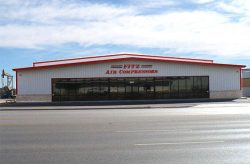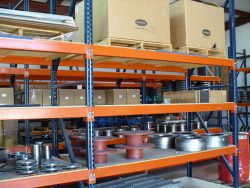Detergent vs Non-Detergent Industrial Air Compressor Oil
An air compressor is a vital component in the business operations of numerous industrial complexes today. Just like any other essential equipment, air compressors can break down when they aren’t maintained properly.
Lubrication is crucial to ensure the proper functioning of air compressors so they can meet the demands of industrial operations. But when it comes to the ever-present detergent vs non-detergent air compressor oil debate, which one should you choose? We’ll delve into each type of compressor oil and more below.
Does My Air Compressor Need Oil?
Lubrication is a crucial element in improving the efficiency and life expectancy of equipment, which also includes air compressors. Lubricant on moving parts reduces friction between components, allowing these parts to slide smoothly past each other without generating heat.
For air compressors, this means adding air compressor oil to prevent friction on pistons, screws, and other moving parts. However, this is only true for oil-lubricated compressors. In the case of oil-free air compressors, oil isn’t required since its moving parts have already been coated and sealed after manufacturing. However, one drawback is that these types of equipment do not last as long since there is no way to add more oil when lubrication wears off.
Benefits of Air Compressor Oil
Aside from their lubricating effects, the addition of air compressor oil presents the following benefits:
- Heat Absorption – Helps the compressor maintain low temperatures by absorbing the heat from compressed air.
- Oxidation Resistance – Contains additives that offer protection against oxidation and acid formation.
- Increased Lifespan – The protection offered by additives in compressor oil increases its lifespan and protects other components when on standby.
- Maintain Viscosity at Low Temperatures – Maintaining a low viscosity even at low temperatures provides continued protection during the winter or in cold environments.
- Demulsification – Increases the ability for water separation, protecting the compressor from oil and water emulsions.
- Anti-Foaming Capabilities – Oil additives prevent the foaming of oil, which contributes to the oxidation of its parts.
- Reduced Energy Consumption – When an air compressor is sufficiently lubricated, heat is removed from the compressed air source, allowing the machine to release more air per kilowatt of power.
Types of Air Compressor Oil
Generally, there are two types of oil used in air compressor systems: standard and synthetic, with each having its own characteristics and advantages.
Standard
Standard compressor oils sometimes referred to as traditional oils, are made using a mineral base and are generally cheaper than synthetic compressor oils. However, they are more volatile and are significantly more reactive, which can form clumps in the system. Because of these properties, they are more suited for homeowners whose usage is DIY or lighter in nature and is not too frequent.
Synthetic
As the name suggests, synthetic compressor oils are made using a synthetic base. They are less volatile than standard oils, which means they are used up at a much slower rate. They can help the compressor run more quietly and smoothly, assisting components to stay cooler while offering ample protection against deposits that can affect compressor performance. They are ideal for production facilities and other high-volume applications where compressors are used regularly.
Detergent vs Non-Detergent Air Compressor Oil
Compressor oils can also be categorized according to their detergent content, which are fuel additives that perform two key functions: to protect metal components from harmful deposits and neutralize acids that form in the oil. Learn more about both below.
Detergent Air Compressor Oil
Detergent air compressor oil contains fuel additives that help prevent rust, break down engine sludge, and neutralize acids, which are crucial in prolonging each component’s life. These are essential functions in combustion engines where parts must be kept clean to ensure continued efficiency.
If detergent air compressor oil breaks down sludge (a gel-like deposit that forms from residual engine oil, moisture, and contaminants like dirt and rust), wouldn’t it be a good idea to use it instead of non-detergent oil? It might go against the grain, but the answer is no.
Switching to detergent-based oil after using non-detergent variants for years can actually damage your compressor, especially if sludge has already formed. Yes, the detergent component will cause the sticky buildup to break apart, but the sludge will not exit the machine properly. Instead, it can spread throughout the machine and cause damage to parts that are not supposed to have lubrication.
Non-Detergent Air Compressor Oil
Non-detergent air compressor oil doesn’t contain detergents but still performs one essential function: it gathers contaminants to prevent them from sticking to the inner walls and cracks. They are typically used in engines on older vehicles and those that consistently use non-detergent oils.
However, great care has to be taken when using non-detergent air compressor oil, because engine sludge or the buildup of compressor oil with contaminants can eventually stall a machine. For instance, sludge buildup in car engines increases fuel consumption and can cause problems like overheating power loss, and inefficient fuel combustion.
Similarly, this can happen to an air compressor. When using non-detergent air compressor oil, we recommend changing the oil frequently and avoiding prolonged intervals between oil changes.
How To Tell Between Non-Detergent and Detergent Air Compressor Oil
Distinguishing between these two oils is easy if you know what to look for. But unfortunately, the labels of these two kinds of oils are sometimes tricky. Some manufacturers label them clearly, but others don’t. More often than not, manufacturers label non-detergent oils. If you find a product on the market whose blend is not explicitly labeled, it’s likely to be detergent air compressor oil.
Don’t hesitate to ask a sales rep if you’re buying from a brick-and-mortar retailer, and if you’re ordering online, ask the seller’s helpdesk or do a quick search online to verify the product’s composition.
Making the Choice: Detergent vs Non-Detergent Air Compressor Oil
The type of lubricant to use in your air compressor will usually depend on the information supplied by your manufacturer and should be included in the manual.
But generally speaking, does your air compressor need detergent air compressor oil? The short answer: no. Detergent oil, which mostly comes in the form of motor oil, is used in vehicles as it helps protect internal combustion engines from harmful compounds that form during combustion.
However, detergents in motor oil can harm your air compressor as it causes a buildup of carbon in your air compressor. Non-detergent air compressor oil is still the best choice to prevent this buildup of carbon from destroying the internal mechanism of your air compressor.
Eliminate the Guesswork With Fitz Equipment
You don’t need to be unsure about whether to choose detergent or non-detergent air compressor oil for your equipment. Leave out all the guesswork and get in touch with the experts at Fitz Equipment. Drop us a message with your query, and we will help you find the best products to ensure continued efficiency on your compressor and maximize outputs.




